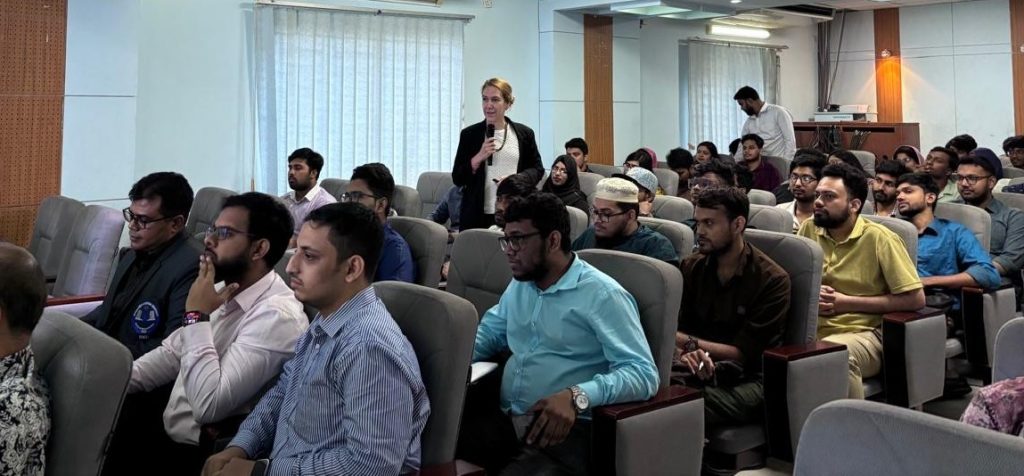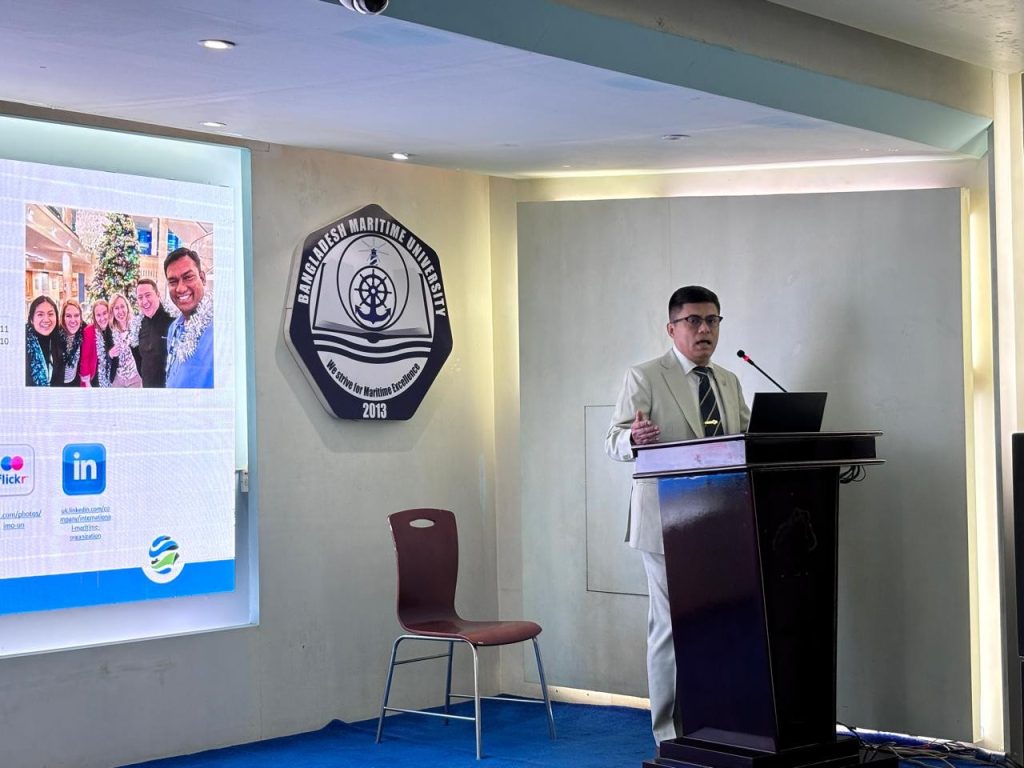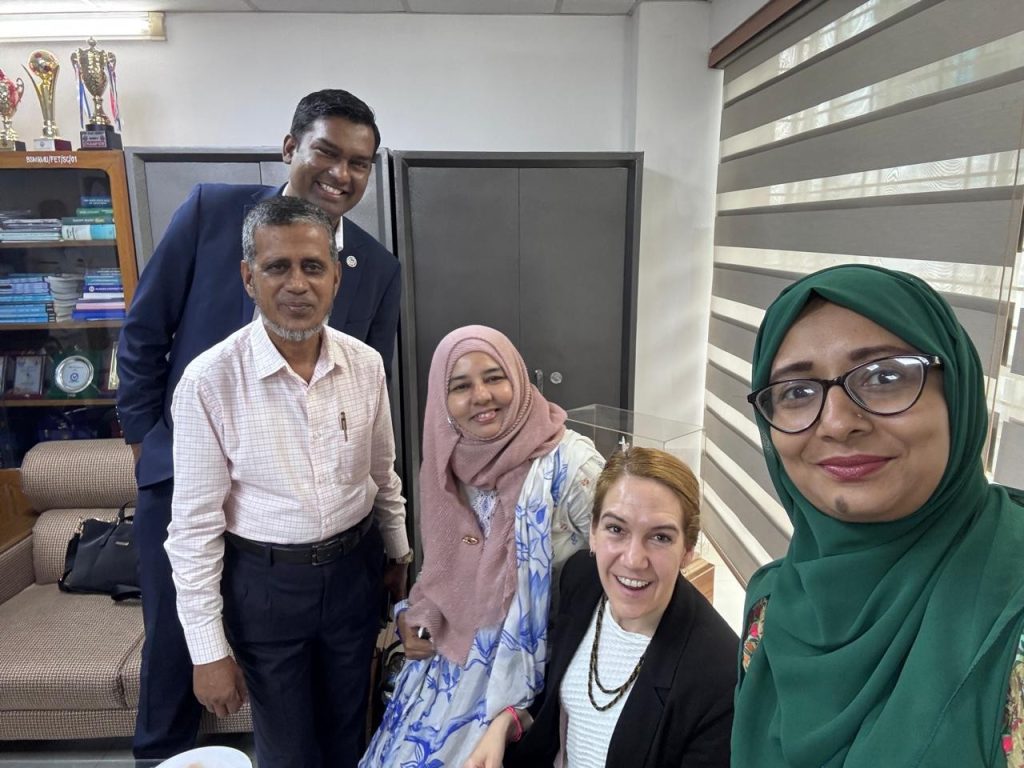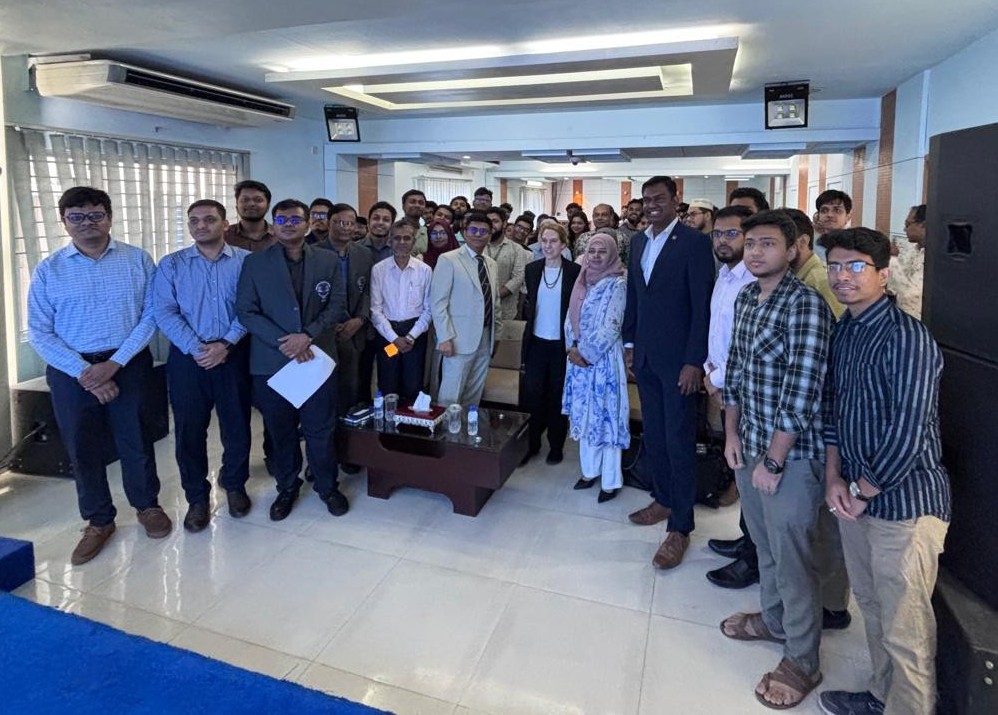A landmark joint seminar was held on 29 April at the Maritime University of Bangladesh in Dhaka, bringing together two flagship International Maritime Organization (IMO) initiatives: the SENSREC Project and the GreenVoyage2050 programme. The event convened university students to hear about the latest advancements in sustainable ship recycling and maritime decarbonization.

The seminar highlighted Bangladesh’s dual commitment to improving ship recycling standards and reducing greenhouse gas (GHG) emissions from its shipping sector. The SENSREC Project, now in its third phase, has played a pivotal role in equipping stakeholders with knowledge and best practice for safe and environmentally sound ship recycling, in line with the Hong Kong International Convention, which comes into force in June 2025. Recent SENSREC workshops in Dhaka and Chattogram have already trained hundreds of shipyard managers, government officials, and other key actors on hazardous waste management and compliance with international standards.

As a newly selected partner country for IMO’s GreenVoyage2050 programme, Bangladesh is developing a comprehensive National Action Plan (NAP) to reduce GHG emissions from shipping, with special emphasis on domestics ships both maritime and fluvial. The seminar provided a platform to present some of the latest advances in cleaner fuels, energy-efficient ship design, retrofitting domestic fleets and integrating port development with sustainable energy policies.

With the entry into force of the Hong Kong Convention and the ongoing development of the NAP, Bangladesh intends to position itself as a regional leader in both ship recycling and maritime decarbonization.



